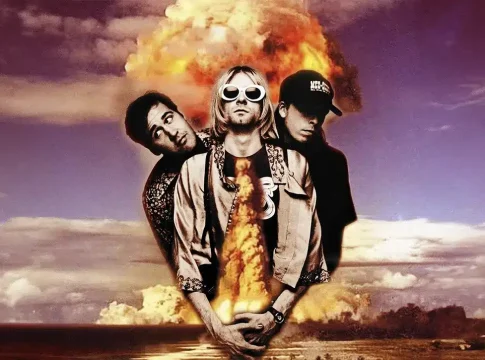Nirvana: The Last Great Rock Stars?
As we gear up for 2024, the music community is set to mark 30 years since the tragic passing of Kurt Cobain, the enigmatic frontman of Nirvana, who left a monumental impact on the world of rock. Fast forward to 2026, and we’ll be reminiscing about the 35th anniversary of Nevermind, an album that changed the sonic landscape forever. It’s a strange blend of nostalgia and bewilderment—if you’re like me and were just a kid when it all happened, it makes you realize just how long it’s been since a band matched Nirvana’s raw energy and emotional depth.
Kurt Cobain: Rock’s Ironic Legend
Kurt Cobain was no ordinary rock star. While he certainly fits into the Classic Rock Canon alongside legends like Jimi Hendrix and Janis Joplin, he also stood apart, pushing against the very essence of what rock music represented. With Nirvana, he shattered the traditional rock star image, infusing the genre with a dose of irony, vulnerability, and a healthy dose of self-critique.
Cobain’s relationship with rock music was almost like a love-hate saga. He loved music’s transcendent qualities but despised the hollow machismo that so often accompanied it. Instead of embracing the glamor and bravado too easily associated with the genre, he sought to obliterate those conventions. Nirvana’s music—from catchy tunes like "Smells Like Teen Spirit" to the darker themes of "Polly"—captured the angst of Generation X while simultaneously mocking its clichés.
The Power of Nihilism
With hits that blasted through radio waves, Nirvana managed to elevate punk rock’s rawness while critiquing its posturing. Their tracks didn’t just rattle your bones; they packed a philosophical punch. Songs like “Territorial Pissings” and “Breed” evoked feelings of youthful defiance, but with Cobain’s unique touch, they revealed a deep-seated alienation that resonated with listeners. Cobain didn’t just write songs; he immersed himself in the chaos of existence, making us feel every ounce of it.
Deconstructing Rock’s Masculine DNA
Cobain and Nirvana redefined rock’s imagery and narrative. The era leading up to Nirvana was dominated by hypermasculinity and rigid stereotypes, with rock icons flaunting their sexual prowess rather than showcasing emotional depth. Nirvana, however, flipped that script on its head. Cobain’s era-defining performances included everything from dressing in women’s clothing to openly challenging gender norms, emphasizing that vulnerability can be more powerful than bravado.
After the Fall: Rock’s Current Landscape
Following Cobain’s death, rock took a nosedive, leaving many to ponder: Can anyone really carry the torch? It seems bands now either lean into nostalgia or drown in irony, rarely managing to evoke the visceral connection Nirvana once did. Rock’s swagger has been reduced to cliché, stripped of its profound emotional weight. The alternative music scene seems caught in a cycle—cool sounds but tame sentiments.
What’s most heartbreaking? No one since Cobain has dared to be as honest, raw, and recklessly authentic. Today’s artists often feel manufactured—deliberate in their messaging and polished to the point of being bland. Nirvana made noise that mattered; it came from a place of genuine struggle.
The Legacy Lives On
So here’s the kicker: Kurt Cobain wasn’t just the last great rock star; he was the genre’s haunting specter. He stripped rock down to its core and left it in fragments. As we reflect on his legacy, perhaps it’s time to ask: Is rock dead, or is it just waiting for the right revolution to emerge? Only time will tell, but one thing’s for sure—Kurt Cobain’s impact resonates louder than any power chord ever could.

Covers viral stories, pop culture, and breaking celebrity news.
Bio: Jamie has a sharp eye for what’s buzzing online, tracking social media trends and entertainment headlines around the clock.

